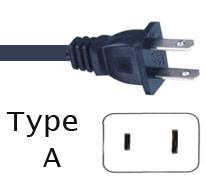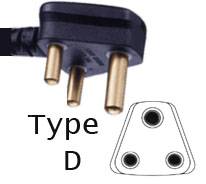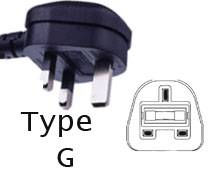Guyana, located on the northern coast of South America, is a country of vast rainforests, diverse wildlife, and rich cultural heritage. From the untamed wilderness of the Amazon Rainforest to the tranquil waters of the Essequibo River and the historic charm of Georgetown, Guyana offers travelers a unique blend of adventure and culture. Explore the pristine nature reserves of Kaieteur and Iwokrama, encounter exotic wildlife in its natural habitat, or immerse yourself in the traditions of Guyana’s indigenous communities. With its warm hospitality, stunning landscapes, and vibrant culture, Guyana invites visitors to embark on an unforgettable journey into the heart of South America.
Ultimate Guyana Travel Guide
Destinations
Best time to go
The best time to visit Guyana is during the dry season, which runs from September to April. This period offers optimal conditions for exploring the country’s rainforests, wildlife reserves, and cultural attractions. However, keep in mind that Guyana’s climate is tropical, with high humidity and rainfall year-round, so be prepared for occasional showers even during the dry season.
Average Temperature By Month
January: 24°C to 31°C (75°F to 88°F)
February: 24°C to 31°C (75°F to 88°F)
March: 24°C to 31°C (75°F to 88°F)
April: 24°C to 31°C (75°F to 88°F)
May: 24°C to 31°C (75°F to 88°F)
June: 24°C to 31°C (75°F to 88°F)
July: 24°C to 31°C (75°F to 88°F)
August: 24°C to 31°C (75°F to 88°F)
September: 24°C to 31°C (75°F to 88°F)
October: 24°C to 31°C (75°F to 88°F)
November: 24°C to 31°C (75°F to 88°F)
December: 24°C to 31°C (75°F to 88°F)
What To Expect
Time Zone:
Guyana operates on Guyana Time (GYT), which is four hours behind Coordinated Universal Time (UTC-4).
Currency:
The official currency of Guyana is the Guyanese Dollar (GYD). US dollars are widely accepted in major cities and tourist areas, but it's advisable to carry local currency for smaller purchases and when visiting rural areas.
Language:
English is the official language of Guyana and is spoken by the majority of the population. Guyanese Creole, also known as Guyanese English Creole or Creolese, is also widely spoken, particularly in informal settings and among certain ethnic groups.
Airport:
Cheddi Jagan International Airport (GEO) in Georgetown is the main international airport serving Guyana. It offers connections to destinations in North America, the Caribbean, and Europe. Additionally, Eugene F. Correia International Airport (OGL) in Ogle, located near Georgetown, serves domestic and regional flights.
How To Get Around
Public Transportation: Guyana’s major cities have limited public transportation options, including buses and minibusses. In Georgetown, taxis are readily available and can be hailed on the street or booked through taxi companies. In more rural areas, transportation may be less frequent, and hiring a car or driver may be necessary for longer journeys.
Rental Cars: Renting a car is possible in Guyana, but it’s less common than in other countries due to the condition of roads and the prevalence of driver services. Car rental agencies are available in Georgetown and at the international airport.
River and Air Travel: In regions with limited road access, such as the interior rainforests, travel may be conducted by boat along rivers or by small aircraft to remote airstrips.
Average Temperature By Month:
January: 24°C to 31°C (75°F to 88°F)
February: 24°C to 31°C (75°F to 88°F)
March: 24°C to 31°C (75°F to 88°F)
April: 24°C to 31°C (75°F to 88°F)
May: 24°C to 31°C (75°F to 88°F)
June: 24°C to 31°C (75°F to 88°F)
July: 24°C to 31°C (75°F to 88°F)
August: 24°C to 31°C (75°F to 88°F)
September: 24°C to 31°C (75°F to 88°F)
October: 24°C to 31°C (75°F to 88°F)
November: 24°C to 31°C (75°F to 88°F)
December: 24°C to 31°C (75°F to 88°F)
Plugs:
Guyana uses electrical outlets that are compatible with Type A and Type B plugs. Type A plugs have two flat parallel pins, while Type B plugs have two flat parallel pins and a grounding pin. The standard voltage is 120 volts AC, with a frequency of 60Hz.
VPN:
While internet access in Guyana is generally available, using a virtual private network (VPN) can provide added security and privacy, especially when accessing public Wi-Fi networks.
Safety:
Guyana is generally safe for travelers, but it's essential to exercise caution, especially in urban areas and remote regions. Be mindful of your belongings, particularly in crowded areas and when using public transportation. Avoid walking alone at night, especially in poorly lit areas, and be cautious in unfamiliar surroundings. Additionally, stay informed about local customs and traditions, and respect the cultural diversity of Guyana's population.
Credit Cards and Banks
Credit Cards:
Credit card acceptance in Guyana can be limited, especially in more rural areas. While major credit cards like Visa and MasterCard are accepted in some hotels, restaurants, and larger shops in urban areas, cash is still the preferred method of payment in many places. It’s advisable to carry sufficient cash for transactions, especially when visiting more remote areas.
Debit Cards:
Debit cards are commonly used in Guyana for ATM withdrawals and some purchases. Most banks issue debit cards that can be used domestically and internationally. Make sure to inform your bank of your travel plans to avoid any issues with card usage abroad.
ATMs:
ATMs are available in major cities and tourist destinations in Guyana, allowing you to withdraw Guyanese dollars (GYD). However, ATM availability may be limited in more remote areas and smaller towns. It’s advisable to use ATMs located inside banks or reputable establishments to avoid issues such as card skimming.
Currency Exchange:
The official currency of Guyana is the Guyanese dollar (GYD). It’s recommended to carry Guyanese dollars for transactions in Guyana. However, US dollars are also widely accepted, especially in tourist areas. You can exchange major foreign currencies at banks and currency exchange booths.
Banks:
Major banks in Guyana include:
- Republic Bank (Guyana) Limited: One of the largest banks in Guyana, Republic Bank offers a range of banking services including savings accounts, loans, and foreign exchange.
- Demerara Bank Limited: Another prominent bank in Guyana, Demerara Bank provides various banking products and services for individuals and businesses.
Traveler’s Checks:
Traveler’s checks are becoming less common worldwide, and their usage is limited in Guyana. It’s recommended to carry cash or use alternative payment methods such as credit/debit cards or ATMs for transactions. However, some banks may still offer services for cashing traveler’s checks, albeit with a fee.
Tips for Banking in Guyana:
- Notify your bank before traveling to Guyana to inform them of your travel plans and avoid any issues with card usage abroad.
- Keep your PIN and card information secure, and be cautious when using ATMs, especially in secluded areas or at night.
- Familiarize yourself with the current exchange rate to ensure fair transactions when exchanging currency.
- Carry small denominations of Guyanese dollars for smaller purchases, as change may be limited.
By understanding the banking system in Guyana, you can ensure a smooth and hassle-free financial experience during your travels in the country.
Locations
Guyana
TRAVEL FACTS
US State Dept Travel Advisory
The US Department of State currently recommends US citizens Reconsider Travel to Guyana due to crime.
https://travel.state.gov/content/travel/en/traveladvisories/traveladvisories.html
Passport/Visa Requirements
For the latest passport and visa requirements for this country, please consult the U.S. State Department’s “Learn About Your Destination” search tool, available through the link below.
US Embassy/Consulate
+(592) 225-4900/9; EMER: +(592) 623-1992; US Embassy Georgetown, 100 Young and Duke Streets, Georgetown, Guyana; acsgeorge@state.gov; https://gy.usembassy.gov/
LGBTQIA+ Travelers
Telephone Code
592
Local Emergency Phone
999
Vaccinations
The CDC and WHO recommend the following vaccinations for Guyana: hepatitis A, hepatitis B, typhoid, yellow fever, rabies, meningitis, polio, measles, mumps and rubella (MMR), Tdap (tetanus, diphtheria and pertussis), chickenpox, shingles, pneumonia, influenza, COVID-19.
Climate
Tropical; hot, humid, moderated by northeast trade winds; two rainy seasons (May to August, November to January)
Currency (Code)
Guyanese dollars (GYD)
Electricity/Voltage/Plug Type(s)
120 V, 240 V / 60 Hz / plug types(s): A, B, D, G




Major Languages
English, Guyanese Creole, Amerindian languages (including Caribbean and Arawak languages), Indian languages (including Caribbean Hindustani), Chinese
Major Religions
Protestant, Hindu, Roman Catholic, Muslim, Jehovah’s Witness, Rastafarian, other Christian
Time Difference
UTC-4 (1 hour ahead of Washington, DC, during Standard Time)
Potable Water
Opt for bottled water
International Driving Permit
Suggested
Road Driving Side
Left
Tourist Destinations
Kaieteur Falls; Canopy Walkway; Marshall Falls; Saint George’s Cathedral; Orinduik Falls; Shell Beach
Major Sports
Cricket, soccer, field hockey, rounders (similar to baseball)
Cultural Practices
Direct eye contact is appreciated in Guyana, and refusal to meet someone’s gaze can be seen as suspicious.
Tipping Guidelines
In restaurants, 10-15% of the bill is conventional. A tip of $2-10 (USD) a day for your guide and $1-3 (USD) for your driver is acceptable.
Souvenirs
Carved wooden animals, handmade slippers, leather goods, beadwork, woven cloth hammocks and dyed fabrics, glassware
Traditional Cuisine
Pepper pot — a stewed meat dish with beef, pork, or mutton, flavored with cinnamon, cassareep (a sauce made from the cassava root), and other ingredients, including Caribbean hot peppers; typically served with homemade bread, rice, or roti and/or boiled vegetables such as cassava, eddoes, sweet potatoes, and green or ripe plantains.
Please visit the following links to find further information about your desired destination.
World Health Organization (WHO) – To learn what vaccines and health precautions to take while visiting your destination.
US State Dept Travel Information – Overall information about foreign travel for US citizens.
To obtain an international driving permit (IDP). Only two organizations in the US issue IDPs:
American Automobile Association (AAA) and American Automobile Touring Alliance (AATA)
How to get help in an emergency?
Contact the nearest US embassy or consulate, or call one of these numbers:
from the US or Canada – 1-888-407-4747 or from Overseas – +1 202-501-4444
Central Intelligence Agency.
The World Factbook.
/the-world-factbook
(May 8, 2024)



